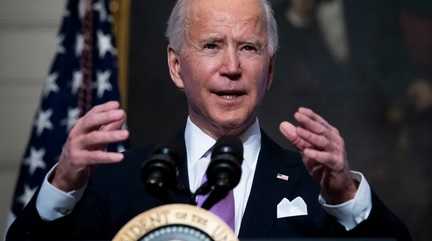
Aug 30 (Reuters) - The administration of U.S. President Joe Biden on Wednesday moved to extend mandatory overtime pay to 3.6 million salaried workers, going even further than an Obama-era rule that was struck down in court.
The U.S. Department of Labor (DOL) released a proposed rule that would require employers to pay overtime premiums to workers who earn a salary of less than $1,059 per week, or about $55,000 per year.
The current salary threshold of about $35,500 per year was set by the Trump administration in a 2020 rule that worker advocates and many Democrats have said did not go far enough.
The proposed rule would not affect overtime eligibility for workers who are paid hourly.
Jessica Looman, who heads the Labor Department office that enforces wage laws, said the proposed rule was necessary to ensure that workers are fairly compensated.
"For too long, many low-paid salaried workers have been denied overtime pay, even though they often work long hours and perform much of the same work as their hourly counterparts," Looman said in a statement.
Publication of the proposal will kick off a 60-day public comment period.
U.S. wage law requires employers to pay eligible workers one and one-half times their regular rate of pay when they work more than 40 hours in a week.
Salaried workers who earn above the salary threshold may still be eligible for overtime pay if they do not primarily perform management-related duties.
Workers are generally automatically exempt if they earn a salary of more than $107,432. Wednesday's proposal would raise that cutoff to about $144,000.
Under the proposal, the salary thresholds would also automatically increase every three years to reflect changes in average earnings.
Several states including California and New York have salary thresholds for determining overtime eligibility that are higher than the current federal standard.
The Labor Department in 2016 doubled the salary threshold to about $47,000. But a federal judge in Texas the following year said that ceiling was so high that it could sweep in some management workers who are exempt from overtime pay protections.
Many major business groups had called on the department to put off any changes to overtime pay regulations, citing inflation, global supply chain disruptions and worker shortages that have raised companies' operating costs.
Ben Brubeck, vice president of construction trade group Associated Builders and Contractors, on Wednesday called the proposed rule disappointing.
“It is unfortunate that the DOL did not listen to our repeated requests to abandon or postpone issuance of the proposed overtime rule until the current economic situation stabilizes or improves," Brubeck said in a statement.




